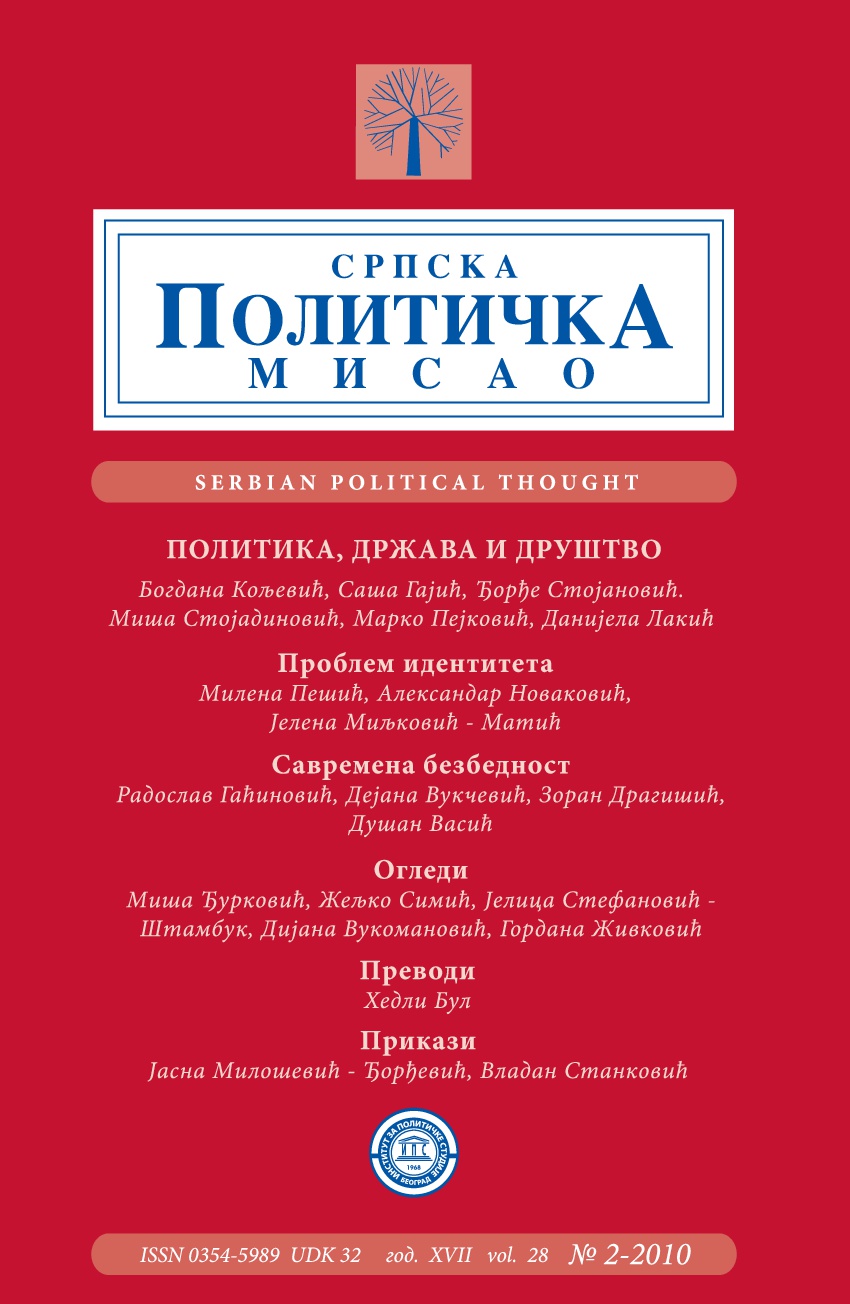Тероризам у политичкој теорији
Terrorism in Political Theory
Author(s): Radoslav GaćinovićSubject(s): Political Theory, Recent History (1900 till today), Government/Political systems, Security and defense, Military policy
Published by: Институт за политичке студије
Keywords: terrorism; terrorist activities; antiterrorism; terror; guerrilla; international community; motives; politics; political theory;
Summary/Abstract: It is necessary to fight against terrorist activities and other forms of imperilment firstly by the state and social system – by democracy at the core of the system, its strength, quality and vitality, by legal state and further development of freedom and rights of the citizens, as well as installing and strengthening of these features into all fields of social life. The more a democratic society strengthens and stabilizes itself in ethical, economical and organizational sense, the more it feels responsible for the process of its protection and in line with this there decreases opportunity for emergence of terrorist activities. Terrorist activities are most dangerous when done under control of some powerful state that is using it for purpose of achieving certain goals. International community does not pay necessary attention to these activities. Despite enormous military potentiality in the world, the states have not succeeded to confront the acts of international terrorism up to the beginning of 21st century. At the end of 20th century there were about 28.000.000 soldiers, 5.500 nuclear warheads, hundreds of thousands of tanks, airplanes and ships, and military budget counted one thousand of milliards dollars worldwide. Not even such military arsenal succeeded to intimidate various world terrorist organizations worldwide, so that the 21st century will certainly bring many challenges, violence, battle against violence and suffering of innocent people. Phenomenological characteristics of modern terrorism (internationalization and trans- nationalization) indicate a multidimensionality of the phenomenon and multidisciplinary approach to its confrontation. An analysis of philosophy of modern terrorism leads to conclusion that terrorism has experienced its peak in second half of the 20th century, having been developed on the basis of alienation of individuals and groups, national conflicts, tensions, misuses of power in the states with dictatorship regimes and non-functioning of legal states. Until the end of the 20th century the international community and great powers’ approach toward modern terrorism and their relationship to its activities has not brought about positive results and so it is inevitable to redefine such approach at the beginning of the 21st century. Only science with help of theory and politics is powerful enough to set people free of a chilly fright and fear of the terrorist activities. In order to achieve such significant idea, the relationship between science and politics ought to be equal and complementary one.
Journal: Српска политичка мисао
- Issue Year: 2010
- Issue No: 2
- Page Range: 177-195
- Page Count: 19
- Language: Serbian

